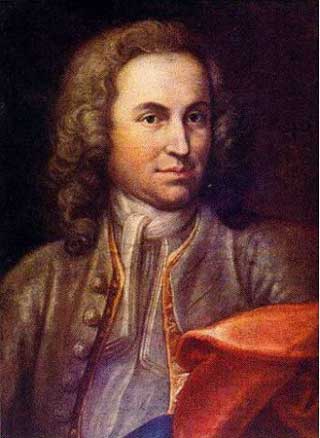Concert
Oratorio
by Johann Sesbastian Bach
Martin Pearlman, Conductor
Jordan Hall, Boston
February 27-28, 2015
With John Mark Ainsley (Evangelist), Andrew Garland (Jesus), Mary Wilson (soprano), Christopher Lowrey (countertenor), Nicholas Phan (tenor), Jesse Blumberg (Pilate)

This early work of Bach, though beautiful, is controversial. Taking much of its text from the Gospel of John, its account of the condemnation and crucifixion of Jesus explicitly lays responsibility on the Jews. Judging, condemning, asking for blood, not allowing him to get off the hook when Pilate offers to do so, the Jews are, in this text, held specifically responsible for the death of God’s emissary on earth.
Wisely, Boston Baroque, in anticipation of its performances of this musically rich and compelling work, whatever its narrative, held a pre-concert forum which addressed the issue of its controversial messages.
Moderated by noted Boston radio and television host Christopher Lydon, the participants were Robert Marshall, noted Bach scholar and Sachar Professor Emeritus of Music at Brandeis, James Bernauer, a Jesuit and member of the philosophy department at Boston College who has worked extensively on Christian-Jewish relations, Deeana Klepper, Associate Professor of Religion and History at Boston University, and Martin Pearlman, music director of Boston Baroque.
Pearlman noted that in the forty years that Boston Baroque has been in existence and under his baton they have never done this piece. “I was uncomfortable with it,” he said. The group, under Pearlman, has, however, performed Bach’s St. Matthew’s Passion, a much less controversial work, a number of times.
The performance itself was exquisite.
Done with a combination of contemporary and period instruments, including lute, viola da gamba, oboe d’amore, viola d’amore, and oboe da caccia, the sound had the hazier and more muted quality of a baroque performance, its charm colored by that wonderful compilation of sounds.
Tenor John Mark Ainsley, noted for the Evangelist role, was pure, clear, and eloquent in his delivery, a ringing of tonality emanating through each of his recitative deliveries which narrated, through liturgy, the corpus of the story.
Baritone Andrew Garland, as Jesus, was rich, resonant, and a very human Savior, the dark and resonant qualities of his voice conveying a compassionate and down-to-earth character.
Countertenor Christopher Lowrey stood on a central podium, rising above the orchestra, elevating his lovely, fluid voice above the floating waves of the strings amid whom he stood.
Aria tenor Nicholas Phan was perched amid the orchestra, his delivery nuanced, etched in lovely phrases, shaped with delicacy.
Baritone Jesse Blumberg, as Pilate, was appropriately gruff though not gravelly, his severity angular and dramatic.
And soprano Mary Wilson gave a few appealing interludes.
The chorus was in top form, providing the fine array of Bach’s mellifluous and tempestuous interludes, the variety of the choral responses as striking as their overall richness.
The orchestra was very good, with some wonderfully rolling violins, lute embellishments, and gamba and cello interleavings. The long viola accompaniments had a kind of rustic flavor, their not quite totally tonal shapings providing an earthy anchor to the liminal narrative.
Pearlman and company did an excellent job of delivering this poignant, though controversial, account, evoking the grandeur of the music and extracting the best sense of the drama.
I attended the concert with an Israeli friend in his late seventies, a real music lover who knows the piece inside out. He has heard it many times, and several of those times in Israel. I asked what he and the fellow Israelis he knew thought about the antisemitic content of the narrative. “Nobody cares,” he told me, clearly more interested in appreciating the grandeur of Bach’s music than taking an offended stance at a narrative which could easily generate one.
– BADMan
Leave a Reply